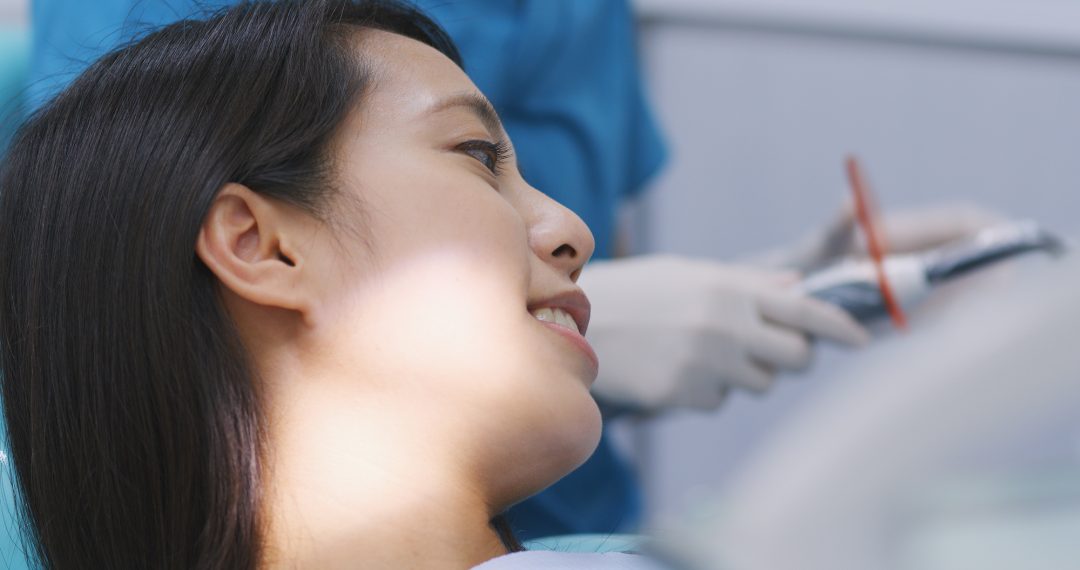
Table of Contents
Teeth grinding, or in medical terms, bruxism is a condition of grinding or clenching one’s teeth in a way where the upper and lower sets of teeth rub against each other consistently. Bruxism is a common condition, affecting nearly one in three people of all ages from childhood to adulthood. Children usually go through a temporary phase of teeth grinding due to the rapid development of their teeth and jaw, with 20-30% grinding at night while asleep but they tend to grow out of it once they reach adolescence.
While this condition is mainly prevalent at night, termed sleep bruxism, unconscious gnashing and clenching of teeth can also occur in the day or awake bruxism as it is called. Sleep bruxism is deemed a sleep-related movement disorder, co-occurring with conditions such as sleepwalking, sleep apnea and restless leg syndrome. We will look at the symptoms, causes, and simple ways to possibly cure teeth grinding.
How Do We Know if We are Teeth Grinding?
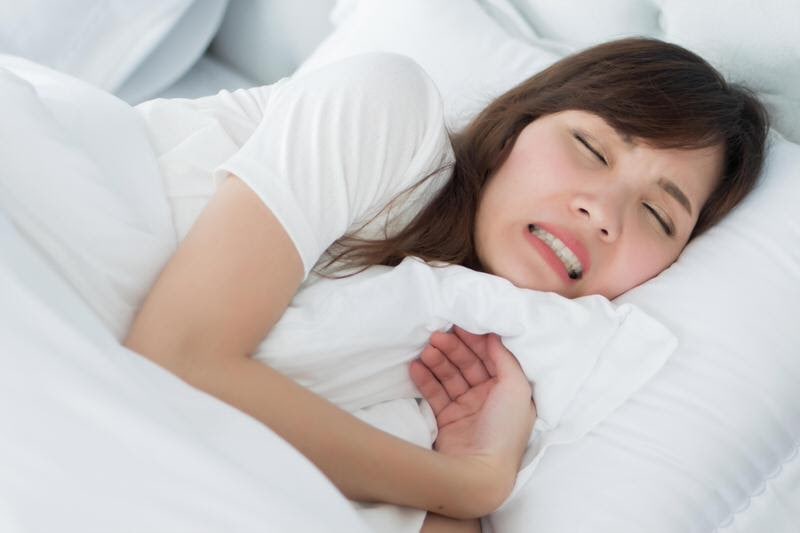
Unless observed and informed by others around at night, not many people are aware if they grind or clench their teeth, until they feel pain or discomfort. Whether you grind your teeth in the day or at night, it is important to know the signs and symptoms of the condition before it worsens and complications develop.
A study shows 70.3% of people report tooth wear, while 44.5% claim pains in masticatory muscles among the signs and symptoms of bruxism. As teeth grinding affects the facial bones, muscles and nerves, especially the teeth and gum areas, excessive pressure over an extended period of time will cause the nerves to become irritated and subsequently the symptoms of increased tooth pain or sensitivity.
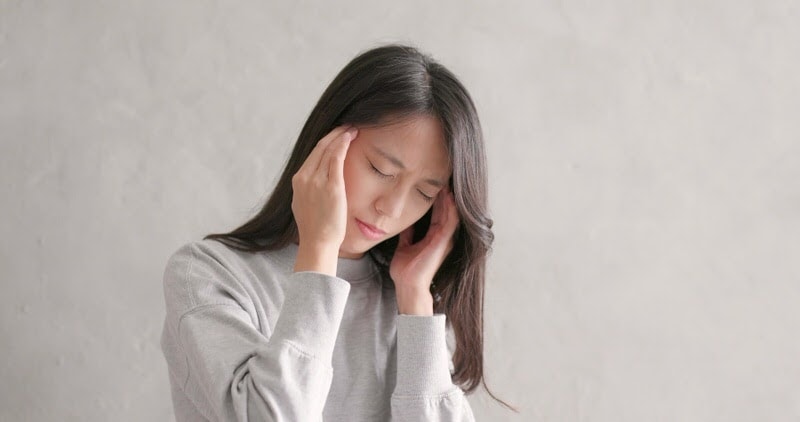
Grinding also wears out the tooth enamel and causes one’s teeth to become flattened, fractured or chipped in the process. The jaw, neck and face muscles will also feel stiff and sore throughout the day, leading to dull headaches starting in the temples when chewing.
Other symptoms would be the disruption of sleep and one’s daily life, as this condition makes it difficult to sleep or function normally.
Why Do We Grind Our Teeth?
There are many reasons why we grind our teeth, biologically and neurologically, and conditions could stem from more than one of these reasons.

Those with misaligned teeth or abnormal jaw positioning are prone to teeth grinding. Mental health is also a reason – especially people who are susceptible or have been diagnosed with anxiety disorder or depression. The level of stress that accumulates over a period of time affects your ability to sleep and relax, which then leads to the intensity of teeth grinding and clenching. Unhealthy habits such as smoking, overconsumption of alcohol and caffeine also contribute to bruxism.

In children, studies have shown that 62.5% with bruxism also had respiratory problems such as asthma, airway disorders, and respiratory infections. It has also been suggested that some children grind their teeth as a natural response to pain, especially when they are teething, or even as a sign of hyperactivity or aggressiveness.
Even though bruxism is a parafunctional habit that one does not have control over, there are multiple treatment options to cure teeth grinding without resorting to aesthetic procedures, depending on the severity and intensity of the condition.
Children adapt and learn quickly when they are young, so it is crucial to guide and instil in them good dental habits early on.
-
Use Mouth Guards
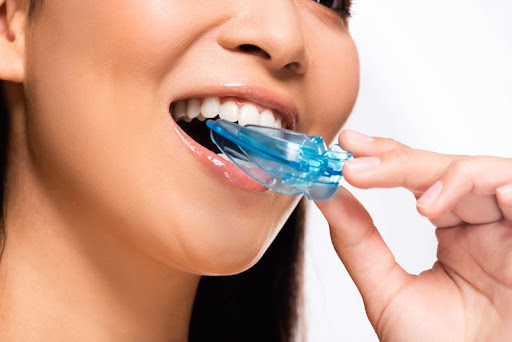
A widely-used conventional treatment to cure teeth grinding is a custom-made night/mouth guard or bite splint, designed to be worn overnight to reduce grinding and keep your teeth protected from further damage.
Although night guards have not been proven to stop the grinding action completely, there is a possibility of providing some feedback to the central nervous system that could reduce the grinding intensity. A mouthguard is done at the dentist where an impression of your teeth is taken so a perfect fit is made for your teeth.
Do note that a mouth guard differs in function to teeth aligners and retainers. Your teeth grinding might wear down the aligners at a quicker rate, though it might not be a big issue as a new set of aligners are usually given every couple of weeks or so anyway.
If you grind your teeth but have been thinking about getting teeth aligners like Invisible Braces, make sure to check with your dentist on your options.
-
Relax Your Jaw Muscles
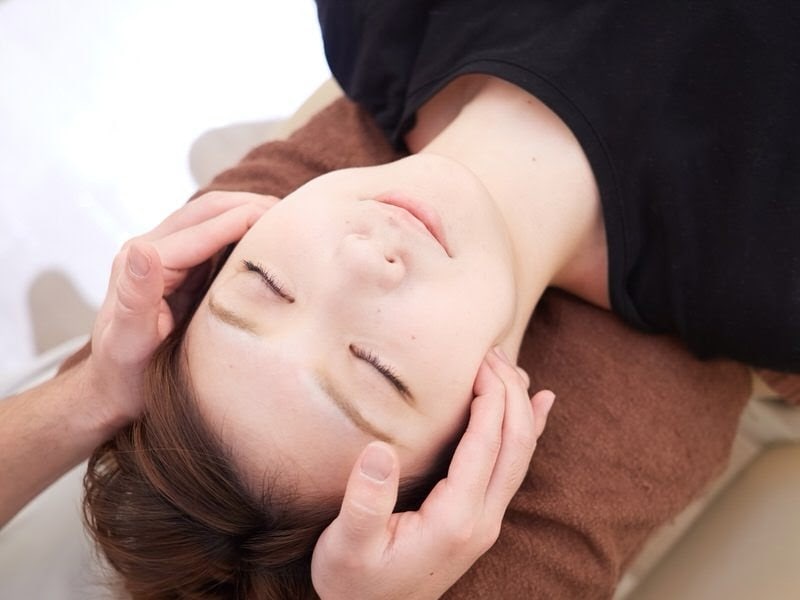
In conjunction with mouth guards, massages are effective in relieving the effects of bruxism and possibly cure teeth grinding when done right. There are a few muscles that work to open and clench the jaw – namely the masseter, temporalis, medial pterygoid, and lateral pterygoid.
Overly tight jaw muscles increase teeth grinding so it is good to massage them daily to release tension in your masticatory muscles. Start with a jaw stretch – fully open and close your jaw for 10 repetitions, then open your mouth and move your jaw side to side for another 10 repetitions.
After that, use the pads of your fingers and rub along the side of your jaw in a circular motion, press and hold areas that have tight knots. Move from the upper to lower jawline, keep pressing on those trigger points.
Moist heat therapy can also be used by using a damp warm compress on the jaw area, applying heat to the underlying muscles and in turn, loosening them up. This can be done as a bedtime ritual to help reduce the intensity of teeth grinding during the night.
If you tend to grind and clench during the day, you can break the habit by becoming aware of it, then make a conscious effort to recognise the triggers and relax your muscles.
Mindful teeth placement by simply rolling your tongue till the tip touches the roof of your mouth can help in consciously maintaining a gap between your upper and lower teeth to avoid clenching.
-
Prepare For Bedtime
It is important to have a proper bedtime ritual to avoid any source of sensory stimulation before sleep. Some of the main things that easily simulate our brains are the screens on electronic devices, so it’s advisable to stop the usage of televisions, computers, and phones one to two hours before bed.
Taking a warm shower would also allow the body to reduce tension: the after-shower transition from high to lower temperature would trigger in the body tiredness and lethargy, due to the decrease in metabolic activity.
Additional ways to help relax the body and mind are to practice deep breathing exercises or meditation, and put on soothing music. For some, the sound of rain sets an environment of utter calmness, and they can feel the tightness and tension in their bodies melt away.
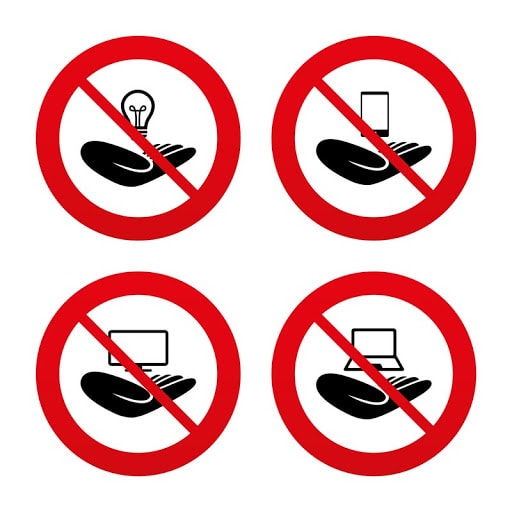
-
Reduce Your Stress Levels
Stress is definitely one of the main reasons for bruxism and it is inevitable in today’s global climate. Although it is almost impossible to stop someone from stressing out, there are many stress-reduction activities out there like exercise, reading, and meditation that can help alleviate it.
After all that, you might still think things are out of your control at the moment, and you continue to feel overwhelmed. In that case, here’s a short guide to seeking help in Singapore.
The key here is to acknowledge and accept that you cannot totally eliminate stress but to work towards managing and releasing it properly. As with physical health, maintaining good mental health is equally important.

When To Seek Professional Help
Of course, these are just some simple ways to consider when attempting to relieve the symptoms and cure teeth grinding or bruxism. Should the condition persist, or when signs of tooth and gum erosion appear, it is best to seek professional help.
At T32 Dental Group, we maintain the quality and standards to create a positive dental experience for every patient through comprehensive, preventive, restorative and cosmetic dental care in a personalised and comfortable environment. Contact us today for a consultation and we will find the right solution for you!
